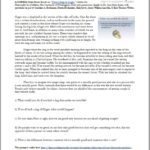

SOPHIA is most grateful to SOPHIA member Dr. Jana Mohr Lone and the Center for Philosophy for Children at the University of Washington for sharing this prompt with SOPHIA.




SOPHIA is most grateful to SOPHIA member Dr. Jana Mohr Lone and the Center for Philosophy for Children at the University of Washington for sharing this prompt with SOPHIA.

In addition, this year we now have three resources available or well established. We have established, for instance,
Application document with instructions: in MS Word format or in Adobe PDF format
Application-only files: in MS Word format or in Adobe PDF format
Applications should be emailed to us at PhilosophersInAmerica@gmail.com, preferably in Adobe PDF format. While applications will now be accepted on a rolling basis, applications received by November 15th, 2018 will be given priority in this funding cycle. We are happy to answer questions in advance, sent to the same email address.
In this 75th episode of Philosophy Bakes Bread Eric Thomas Weber and Anthony Cashio interview Monica McCarthy, host of the Happier Hour podcast, on the theme “All Philosophy’s a Stage.”
Monica is a thespian, a playwright, the founder of Cheshire Parlour, and the creator and host of “The Happier Hour” podcast. Monica has acted on Broadway and in television programs, film, advertisements, including an appearance on the show Six Feet Under, for example, which was a great show. Very impressive. We connected with Monica especially in relation to her work on The Happier Hour podcast, which her Website describes as “equal parts philosophy and self-help (with a dash of humor thrown in for taste).”
Listen for our “You Tell Me!” questions and for some jokes in one of our concluding segments, called “Philosophunnies.” Reach out to us on Facebook @PhilosophyBakesBread and on Twitter @PhilosophyBB; email us at philosophybakesbread@gmail.com; or call and record a voicemail that we play on the show, at 859.257.1849. Philosophy Bakes Bread is a production of the Society of Philosophers in America (SOPHIA). Check us out online at PhilosophyBakesBread.com and check out SOPHIA at PhilosophersInAmerica.com.
(1 hr 7 mins)
Click here for a list of all the episodes of Philosophy Bakes Bread.
We’re on iTunes, Google Play, Spotify, Stitcher, and even now on YouTube, and we’ve got a regular RSS feed too!
For our future “You Tell Me!” segments, Monica asked the following question in this episode:
“In what ways are you being the understudy to your own life and what can you do to change that today?”
Let us know what you think! Via Twitter, Facebook, Email, or by commenting here below.
The Society of Philosophers in America (SOPHIA) is saddened to learn of the passing of John J. McDermott, one of SOPHIA’s founders and a Trustee Emeritus. The messages gathered here speak to his influence and the importance of his work, life, and friendships.
John McDermott was the embodiment of American philosophy: intelligent, vital, caring. In the years when American philosophy was unappreciated, he was a lone voice crying in the wilderness. He kept James, Dewey and Royce alive and fought to return the profession to its historic mission. He combined a keen aesthetic sense with urban practicality. His colleagues loved him and even his adversaries paid him grudging admiration. He was a teacher and deserves the gratitude of thousands of his students whose lives he touched.
– John Lachs, Chairman of the Board of Trustees and Centennial Professor of Philosophy at Vanderbilt University
John McDermott embodied the spirit of American Philosophy as he explored the depths (both dark and rich and uplifting) of human experience. He also provided us with rich resources for exploration of American philosophy with his edited volumes on William James and Josiah Royce. He supported younger scholars, mentoring and encouraging them, and was always a gadfly for making all that we do as philosophers deeper and clearly relevant to life and to change for the better.”
– Jacquelyn Kegley, Trustee and Professor of Philosophy at California State University Bakersfield
Among John McDermott’s innumerable contributions to American academic philosophy, within SOPHIA’s history he especially added stability and a cosmopolitan spirit just as SOPHIA became less restricted and more open to a broader mandate and membership. John knew how to look forward. Intellectually he was unafraid to push connections between the literary and the philosophical. A favorite example is his textbook, A Cultural Introduction to Philosophy: From Antiquity to Descartes, which for me provided a tantalizing example of the fruitfulness of such connectivity. John knew how to link ‘story’ to American central experiences, ideas, and arguments. He will be missed as a comrade in arms, deeds, and words and as a versatile, pliant, opinionated critic!
– Jack Loughney, SOPHIA Trustee Emeritus and Professor Emeritus of Philosophy at Westfield State University
I literally do not have the words to say what needs to be said about John. He was simply the most amazing teacher and mentor I have ever known. And together with John Smith, he was the best scholar of American philosophy in the twentieth century. His character and influence will be with the world for a very long time through the work of his many students and those he mentored.
– Doug Anderson, Emeritus Trustee and Professor of Philosophy at the University of North Texas
With the passing of John McDermott philosophy in America has suffered an enormous loss, but, even more sadly, many of us have lost an irreplaceable friend and inspiration. At a time when the analytic establishment was making philosophy in America boring and irrelevant, John McDermott led the fight that brought back classical American philosophy and launched the pluralist movement, not merely through his voluminous writings and unique, spirited style of writing but also through his personal example, friendship, and encouragement. I like many of my generation would not have remained in philosophy had I not met John, and philosophy in America would have a very different face today if it had not been for him.
– Kenneth William Stikkers, Trustee and Professor of Philosophy at Southern Illinois University Carbondale
John was an inspiration to legions of philosophers and resisted some of the worst trends of the philosophical profession. He helped to create a better way forward. He was named one of the 50 most influential living philosophers in 2016, yet had the consideration and kindness to reach out to young scholars with an ear, sympathy, and advice. A towering scholar and force championing American philosophy, John also worked to include philosophers of all levels and positions into dialogue in SOPHIA, rejecting the traditional pretenses of the ivory tower. He will be missed, but his voice and heart continue to inspire.
– Eric Thomas Weber, Executive Director and Associate Professor of Educational Policy at the University of Kentucky
This set of remarks is available in printable, Adobe PDF format here.
If you could get away with anything, could you resist the temptation to do what others consider wrong?
Three leaders of the Lexington SOPHIA Chapter, Derek Daskalakes, Lila Wakman, and Erik Jarvis, introduce here this theme of our upcoming meeting, at 6pm on Tuesday, October 16th of 2018 at the Good Foods Coop in Lexington, KY, titled the “Ring of Gyges.” Join us for fellowship and a really fun conversation.
To learn more, check out and join our MeetUp group:
https://www.meetup.com/Lexington-SOPHIA-Chapter/
Connect also with our Facebook Group:
https://www.facebook.com/groups/973809392802752/
And our chapter’s Twitter profile:
https://twitter.com/LexingtonSophia
Finally, here’s the link to our October 2018 get together:
https://www.meetup.com/Lexington-SOPHIA-Chapter/events/254488521/